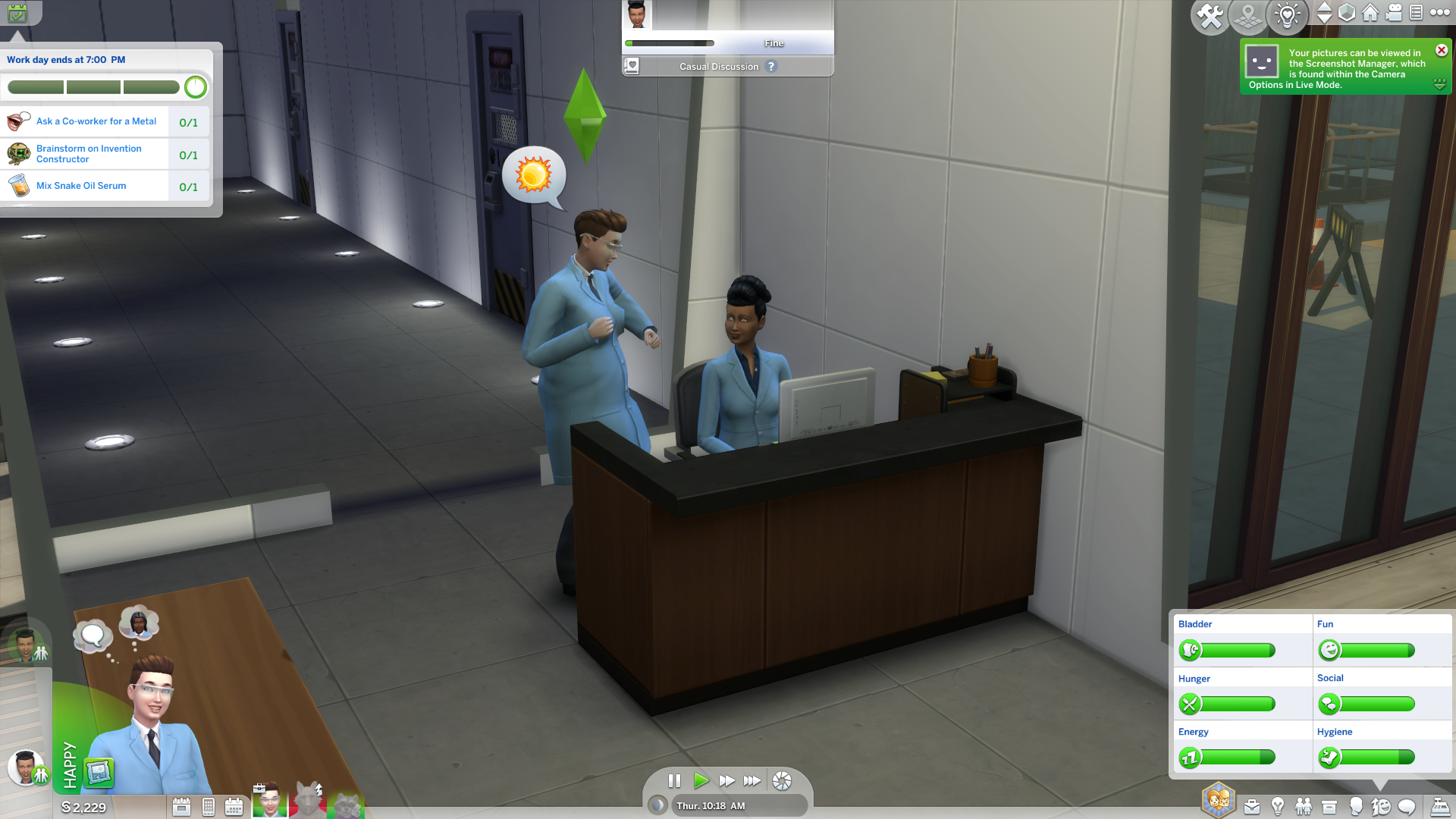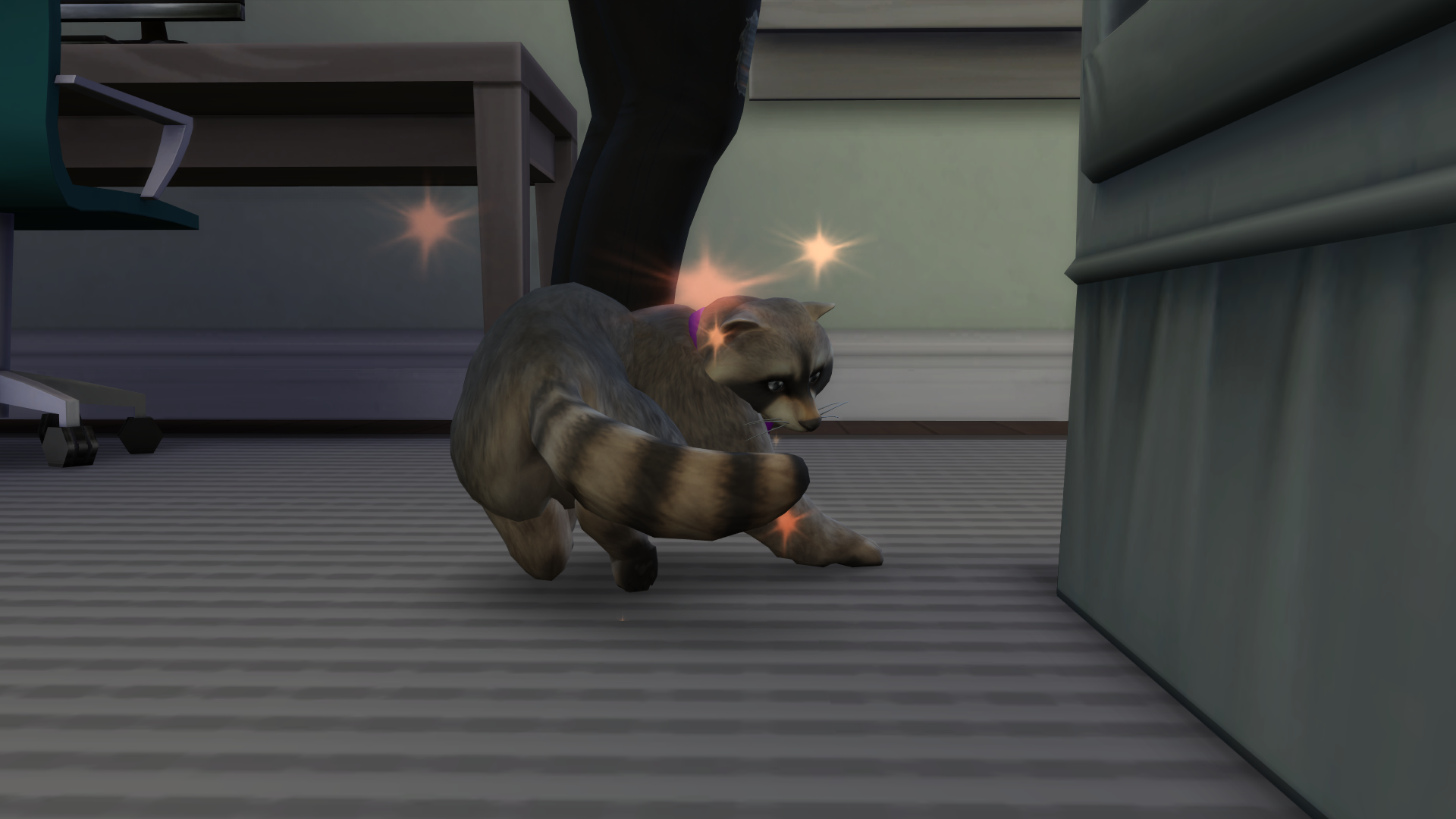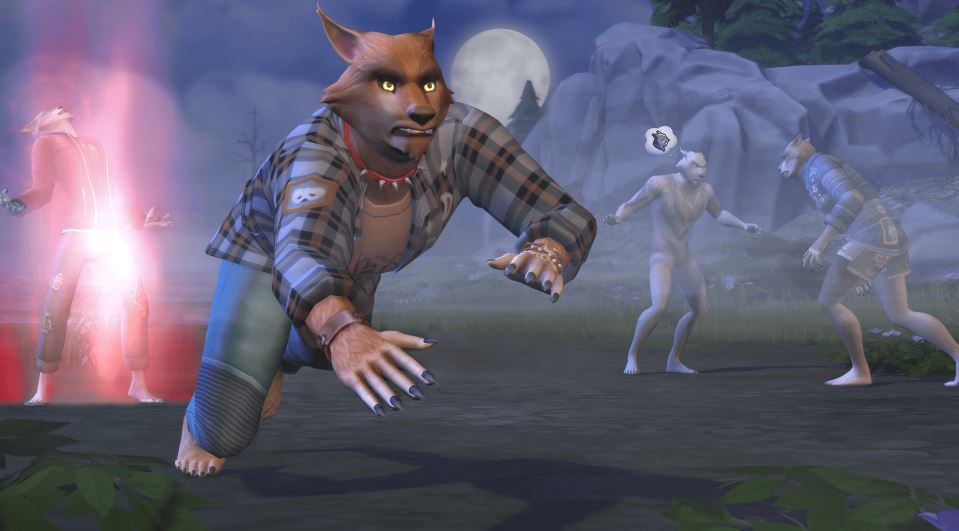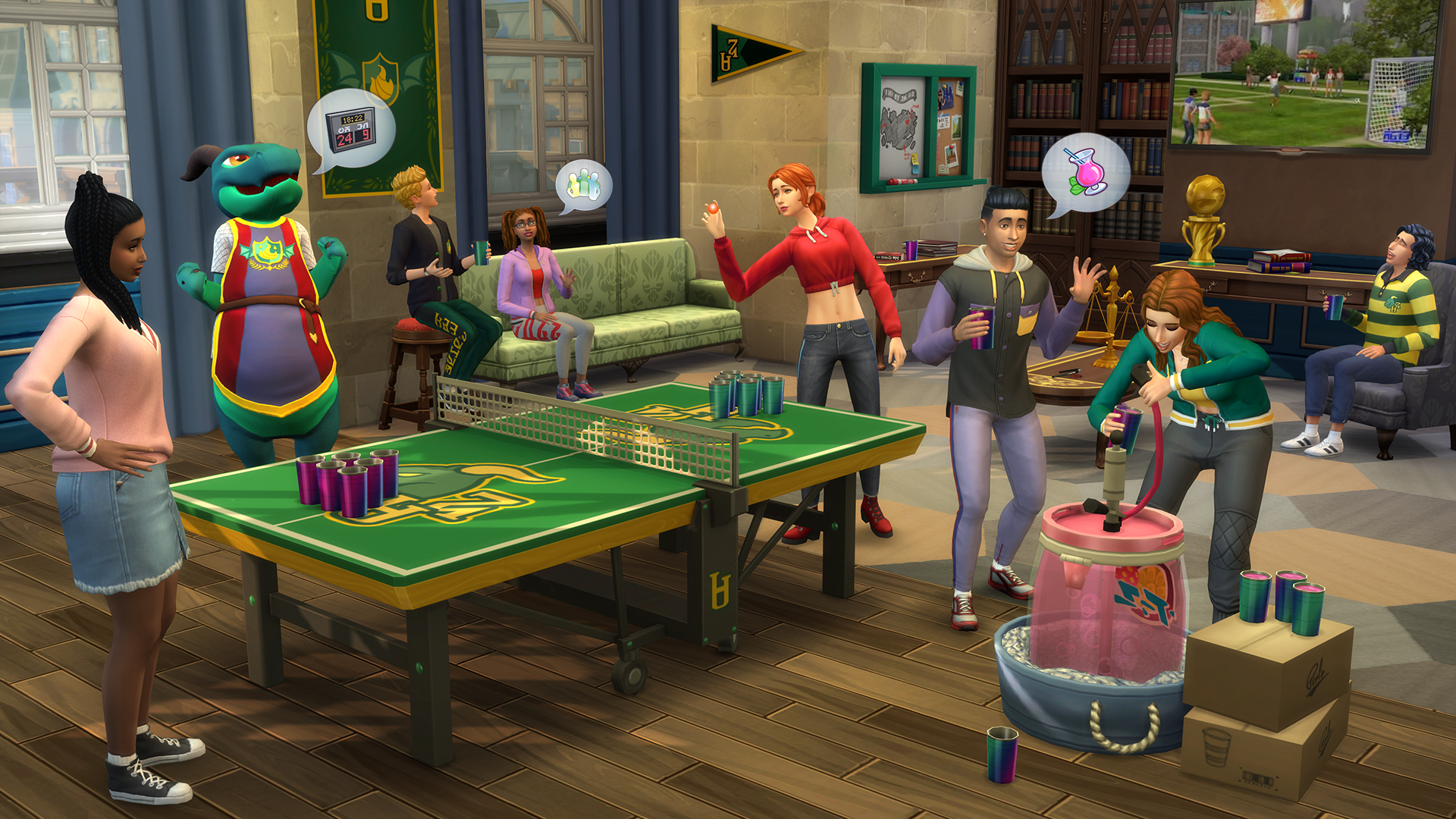[ad_1]
The Sims has been around for 22 years now, with even the fourth, and most recent, numbered entry being a venerable eight years old. My first time playing the original was a communal experience in the sixth form common room, crowded around a friend’s laptop. We created a replica of said common room, populated it with facsimiles of friends and mostly left them to their own devices. One of them forgot where the toilet was and peed himself, then cried about it.
The Sims 2? Not sure if I even played it. I was 21 when it was released in 2004 and, like much of my life back then, the memories are a bit fuzzy.
Number three meanwhile was inspirational. Not so much the game itself, although many would say it’s the high point of the series, but the writing about it. Robin Burkinshaw’s “Alice and Kev”, a blog chronicling the adventures of a homeless Sim and his daughter, really struck a chord and inspired me to try my hand at something similar. (It was rubbish.)
In 2014 we got the fourth entry. My life wasn’t in great shape at the time, but neither was the game. We’ve changed for the better since then, The Sims 4 and I, so let’s talk about that.
I can’t disentangle the stages of my life from that of The Sims. The series is all about stages! Sims grow from babies through childhood and adulthood, before eventually passing away. Your games start as micromanaged struggles for survival, evolving into a more sedate rhythm of career progression and acquiring more stuff. The games themselves are similar. They are released into the world, fresh and new, accumulate updates and expansions, then are put out to pasture when a sequel is announced.
The Sims is, at its core, a virtual dollhouse. You create a household, whether that be a single Sim, a bunch of roommates or a multi-generational family, then drop them into a house (which you can build yourself) and watch them live their lives. Each Sim has their own personality traits, desires and needs and your job is to keep them happy. Or not. While The Sims can be played as a highly goal-oriented game, with lots of micromanagement to ensure that they’re living their best lives, a lot of fun can be had torturing the poor little blighters too. Alternatively, the AI is robust enough to just let them loose and see how they fare on their own.


When the original was released, I was captivated. While the idea of little computer people was hardly new (take 1985’s Little Computer People, for example) The Sims promised something far more involved than any of its contemporaries. And it was by the guy who made all those Sim Whatever games that consumed so many hours of my Amiga-owning childhood!
The Sims is also deeply surreal. It’s absolutely possible to play it straight and there are scores of mods dedicated to making your dolls as realistic as possible, both in appearance and behaviour. It’s like the mods that turn Skyrim into a hardcore survival simulation, but for doing laundry. If you want to go the other way, there are expansions that add overt supernatural elements, like vampire and werewolves. But even without all of that, the world of The Sims is really weird. From the quite ridiculously high rate of electrical appliance failures that turn into full blown house fires, to the songs by real artists recorded in the game’s gibberish language, Simlish, there are many reminders that you’re not in Kansas anymore.
When all of these slightly disparate elements stack up, the result is a wonderful toy for telling stories. You can set up all kinds of weird and wonderful scenarios and watch them play out, interfering as much or as little as you choose to. You can make facsimiles of yourself and your loved ones and send them on wacky adventures. How about a megalomaniacal evil genius who craves world domination, but lives in a tiny shack with his kindly, ageing mother? Or a devil and an angel forced to live together and take care of an awkward teenage boy? I’ve done all of these and more.

But it comes back to cycles, and The Sims 4, quite infamously, didn’t start its own cycle in particularly good shape. While it is inevitable that sequels to this kind of open-ended game will struggle to keep up with the latest tech, while still keeping all the features added to the original over its lifetime (and that’s before we get onto DLCs and such), even the most charitable observers noted that The Sims 4 felt rather incomplete. Notably, the entire toddler life stage for Sims was missing and – crucially – there were no swimming pools.
Now, if you’re not familiar with the series, this may not seem a big deal, but pools have always been an integral part of the games. Not only are they emblematic of the (allegedly satirical) aspirational consumer culture the game advocates, but they’re also great fun for luring unsuspecting Sims into and then using build mode to remove the ladder. The Sims launching without swimming pools is like Doom launching without shotguns.
Credit where credit’s due, Maxis has added a huge amount of free content over the past eight years, both features considered missing by the player base, along with entirely new ones. New options for customising the gender of your Sims were broadly welcomed by the transgender community, and remain one of the best examples of trans inclusivity in AAA games. On the other hand, it took until 2020 for criticism of the games poor skin tones, especially darker shades, to be addressed.


The big fear of most players at the time was that the missing elements were being held back for paid expansions and, while this fear arguably turned out to be unfounded, there’s certainly a huge amount of extra stuff to buy. There is a degree of irony in a series with The Sims’ satirical roots becoming a digital poster child for the sort of consumer capitalism that it was originally intended to lampoon.
Load up the game and the first thing that greets you is a screen that is mostly showing you more things you can buy for the game, with your actual game menu shoved off to one side. There are a whopping 41 “packs” available to buy across the expansion, game, and stuff varieties, as well as a number of kits, which just seem to be smaller-stuff packs. User created content is also given a spotlight, but much of it requires packs that you may not already own, so from EA’s point of view, this is just another way to encourage you to spend, spend, spend.
If you’re so inclined, you can spend a lot of money on The Sims 4. According to Steam, buying all the content for the game will cost you around £840. Cutting back the cosmetics leaving just the feature adding expansion and game packs still adds up to over £600, and sales tend to be half price at best, so you’re looking at £300 for everything the game has to offer.


What about dipping a toe in, for those who can resist the lure of real world capitalism, but want to play around with the pretend kind? Jumping into the game now, even without additional packs, it’s clearly a more complete and fully featured game than it was at launch, and it’s still a lot of fun. There’s a reason I’ve kept coming back to this series for over twenty years and it’s because it is, quite simply, a great way to spend some time at your computer. Whether you want to create domestic bliss, play around with interesting scenarios or just torment some virtual people as a capricious and sadistic deity, The Sims 4 is just as compelling as the series has ever been.
The things Maxis have added are, by and large, a lot of fun. There’s certainly a discussion to be had about the price, and whether they really offer value for money, but they do expand the game in interesting and imaginative ways. Playing around with the Werewolf pack, for instance, I was genuinely impressed with how involved everything was, especially the werewolf pack dynamics, even if the werewolf models themselves are halfway between sexy furry art and sports team mascot.
Ironically again, the real problem, especially for anyone starting The Sims 4 for the first time, is that there’s just too much of it. My partner and I have accumulated eight of the expansion and game packs over the years and after booting up a new game after some time away, I’m overwhelmed with options – but also have the sneaking suspicion that I’m missing out on something. It’s a distinctly uncomfortable experience that leaves me feeling horribly manipulated.
The result is a strangely contradictory experience. The Sims 4 is eight years old, and so you could argue, going by previous cycles, that a sequel is at least three years overdue. Being pushed so far beyond its natural lifespan is maybe beginning to take its toll, in other words. It’s a game in need of a reset – a new cycle, if only to declutter its house.
[ad_2]




